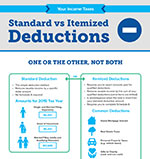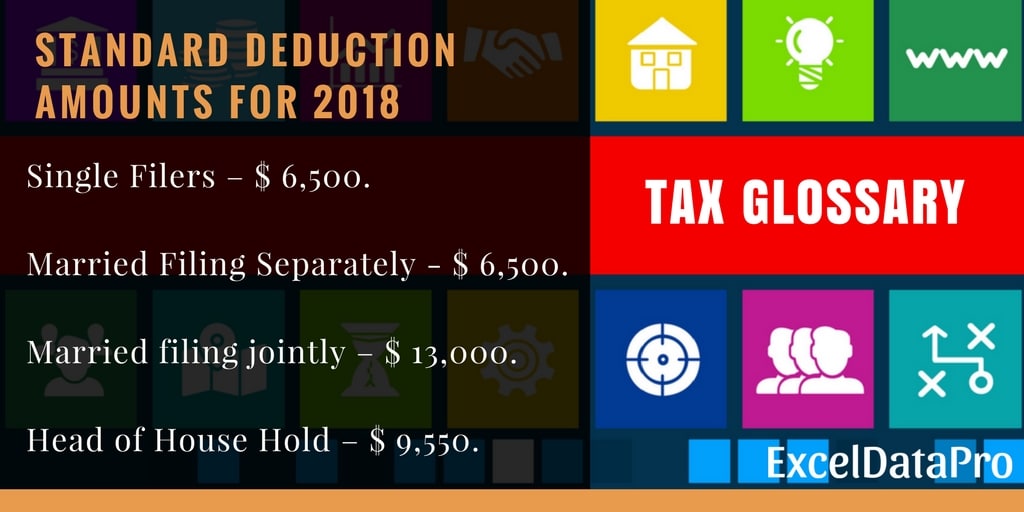How to avoid IRS issues when filing with the FEIE Standard Deduction
Wiki Article
The Foreign Earned Revenue Exemption Explained: A Guide to Enhancing Your Basic Deduction
The Foreign Earned Income Exemption (FEIE) is a crucial tax obligation provision for U.S. residents and resident aliens living abroad. It enables qualified migrants to leave out a considerable section of their foreign-earned earnings from federal taxes. Understanding the nuances of FEIE can bring about significant tax obligation financial savings. Several individuals overlook important information that might impact their eligibility and advantages. Exploring these elements might expose opportunities for improved tax outcomes.Comprehending the Foreign Earned Revenue Exclusion
Numerous expatriates look for opportunities abroad, comprehending the Foreign Earned Revenue Exemption (FEIE) is crucial for managing their tax obligation responsibilities. This stipulation enables U.S. people and resident aliens living overseas to leave out a specific amount of their made income from federal taxes. The FEIE was developed to reduce the tax obligation problem on people who stay outside the United States, acknowledging the distinct financial obstacles they might encounter.
Eligibility Needs for FEIE

Just how to Assert the FEIE
To effectively claim the Foreign Earned Revenue Exclusion (FEIE), taxpayers should initially confirm their qualification based upon details standards - FEIE Standard Deduction. The procedure entails a number of steps, consisting of submitting the proper kinds and supplying necessary documents. Understanding these demands and procedures is essential for optimizing tax benefits while living abroadEligibility Demands
Qualification for the Foreign Earned Earnings Exemption (FEIE) depends upon conference specific standards established by the IRS. To certify, individuals need to be united state citizens or resident aliens that make revenue while working abroad. They require to establish a foreign tax obligation home, which implies their main business is outside the USA. Furthermore, applicants have to satisfy either the Bona Fide Residence Examination or the Physical Visibility Examination. The Authentic Residence Test requires that a taxpayer stays in a foreign country for a whole tax obligation year, while the Physical Existence Test necessitates investing a minimum of 330 full days in a foreign nation throughout a 12-month duration. Meeting these requirements is important for declaring the FEIE.Filing Process Steps
Exactly how can one properly browse the process of declaring the Foreign Earned Income Exclusion (FEIE)? Initially, people have to identify their eligibility based on the physical visibility test or the authentic home test. When confirmed, they must finish IRS Kind 2555, which details international earnings and residency. This form must be affixed to their yearly income tax return, commonly Form 1040. It is necessary to properly report all international gained earnings and assurance conformity with the internal revenue service standards. Furthermore, taxpayers need to preserve correct documents, such as foreign tax obligation returns and proof of residency. By following these steps, people can efficiently declare the FEIE and potentially lower their gross income substantially, boosting their total monetary position.Calculating Your International Earned Earnings Exemption
While lots of expatriates look for to optimize their financial benefits abroad, understanding the estimation of the Foreign Earned Income Exclusion is essential for accurate tax coverage. The Foreign Earned Revenue Exclusion permits qualifying people to omit a specific amount of their foreign revenues from united state taxes, which is changed every year for rising cost of living. To calculate this exemption, expatriates need to establish their total international earned income, which typically includes earnings, incomes, and specialist fees made while staying in an international nation.Next, they should complete IRS Form 2555, supplying information regarding their international residency and job condition. FEIE Standard Deduction. It's crucial to satisfy either the authentic residence test or the physical existence test to get the exclusion. When these elements are developed, the optimum permitted exemption amount is used, minimizing the individual's taxable revenue substantially. Accurate calculations can bring about significant tax obligation cost savings for migrants living and working abroad
The Influence of FEIE on Other Tax Benefits
The Foreign Earned Revenue Exemption (FEIE) can affect a person's eligibility for certain tax obligation advantages, including the standard deduction. By leaving out international earned revenue, taxpayers may find their adjusted gross income influenced, which subsequently can influence their credentials for numerous tax credits. Comprehending these communications is essential for optimizing tax outcomes while living abroad.Interaction With Standard Deduction
When individuals get the Foreign Earned Revenue Exemption (FEIE), their qualification for the common reduction may be influenced, potentially modifying their total tax obligation. The FEIE allows taxpayers to leave out a specific amount of made revenue from united state taxation, which can lead to a reduced taxed income. Therefore, if the omitted income exceeds the standard deduction, it can lessen the advantage of declaring that deduction. In addition, taxpayers that make use of the FEIE might discover that their ability to detail deductions is also affected, as particular expenditures might be influenced by the exemption. Recognizing this interaction is vital for expatriates to maximize their tax obligation advantages while ensuring compliance with U.S. tax obligation regulationsQualification for Tax Obligation Credits
Steering via the complexities of tax debts can be challenging for migrants, particularly given that the Foreign Earned Earnings Exclusion (FEIE) can significantly influence qualification for these advantages. The FEIE enables qualified people to leave out a considerable portion of their international revenues from united state taxation, but this exemption can also impact access to different tax credits. Taxpayers who make use of the FEIE might discover themselves ineligible for credit ratings like the Earned Income Tax Obligation Credit Scores (EITC), as these credits commonly require taxed revenue. Additionally, the exclusion may limit the ability to assert certain deductions or credit scores linked with dependents. Understanding the interplay in between the FEIE and offered tax credit ratings is essential for expatriates intending to optimize their tax circumstance.
Common Blunders to Avoid When Asserting FEIE
Frequently, expatriates encounter a number of mistakes while claiming the Foreign Earned Revenue Exemption (FEIE), which can lead to pricey errors or missed out on opportunities. One constant mistake is falling short to fulfill the physical existence or bona fide residence examination, which is vital for eligibility. In addition, expatriates often forget the need to submit Kind 2555 correctly, causing insufficient or imprecise submissions.One more common error entails inaccurately calculating international earned earnings, as lots of do not make up all appropriate revenue sources. Some expatriates erroneously presume they can omit all their revenue, not aware of the restrictions on the exemption quantity. Neglecting to preserve correct paperwork, such as travel dates and residency condition, can jeopardize a Bonuses case. Misconstruing the ramifications of the FEIE on various other tax obligation credit histories might lead to unintentional tax responsibilities. Recognition of these challenges can facilitate a smoother claiming procedure and make the most of potential benefits.
Resources for Expats Navigating United State Taxes
Maneuvering U.S. tax obligation commitments can be testing for migrants, especially after encountering mistakes in declaring the Foreign Earned Income Exemption (FEIE) To aid browse these complexities, a selection of sources are readily available. The IRS internet site supplies substantial information on tax obligation policies, frequently asked questions, and forms particularly customized for migrants. Additionally, companies like the American People Abroad (ACA) and the Expat Tax obligation Professionals offer support and assistance to assure conformity with tax regulations.Online discussion forums and neighborhoods, such as the Expat Forum, allow expatriates to share experiences and understandings, fostering an encouraging setting for those encountering comparable challenges. Additionally, tax preparation software application, like copyright and H&R Block, often includes functions created for expats, making the declaring process a lot more easy to use. Involving with these resources can empower expatriates to better comprehend their tax responsibilities and optimize benefits like the FEIE.
Regularly Asked Inquiries
Can I Assert FEIE if I'M Self-Employed Abroad?
Yes, independent individuals abroad can claim the Foreign Earned Revenue Exclusion (FEIE) To certify, they need to meet specific needs regarding residency and revenue, ensuring they comply with IRS guidelines for migrants.
Is the FEIE Applicable to Foreign Pensions?
The Foreign Earned Revenue Exemption (FEIE) is not applicable to foreign pension plans. Pensions are thought about Click Here unearned revenue and do not get approved for the exclusion, which especially puts on gained revenue from employment or self-employment abroad.What Happens if I Go Back To the United State Mid-Year?
They might need to readjust their tax circumstance if a specific returns to the United state mid-year. Their eligibility for specific reductions and exemptions, consisting of the Foreign Earned Earnings Exclusion, could be affected by their residency status.Can FEIE Be Claimed With Other Reductions?
Yes, the Foreign Earned Income Exclusion (FEIE) can be declared along with various other reductions. However, treatment should be taken to assure look at this web-site proper conformity with tax obligation policies, as specific constraints might use based upon individual scenarios.How Does FEIE Impact State Tax Obligation Commitments?
The Foreign Earned Income Exclusion can reduce a taxpayer's federal earnings tax obligation obligation, yet it does not automatically influence state tax obligations, which vary by state and might still require coverage of foreign earnings.Many migrants look for opportunities abroad, understanding the Foreign Earned Income Exclusion (FEIE) is important for managing their tax obligation obligations. By excluding foreign made earnings, taxpayers may find their modified gross revenue affected, which in turn can influence their qualification for numerous tax credits. Guiding with the complexities of tax obligation credit reports can be testing for migrants, especially considering that the Foreign Earned Income Exemption (FEIE) can greatly impact eligibility for these advantages. Taxpayers who use the FEIE might locate themselves disqualified for credit ratings like the Earned Earnings Tax Obligation Credit Report (EITC), as these credit histories usually call for taxed income. Steering United state tax obligation commitments can be challenging for expatriates, especially after coming across risks in declaring the Foreign Earned Earnings Exemption (FEIE)
Report this wiki page